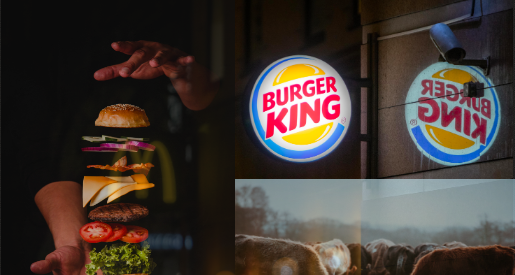Where’s the Beef? How the “Impossible” Meat Trend is Impacting Your Health and Environment
January 30, 2020
Food trends are increasingly popular among social media influencers and foodies alike. Some recent, noteworthy fads include the avocado trend, spiked seltzers, and the keto diet. To begin 2020 “meatless meat” has taken over, even being distributed among large franchises like Qdoba and Burger King. The alternative meat is meant to mimic beef, chicken, and pork in restaurant dishes, marketed as a meat alternative to meat-eating customers to replace some meat purchases. This differs from the well-known veggie burger, as those are burgers marketed to vegans and vegetarians, who only make up about 3% of the US population.
https://www.instagram.com/p/B1G1I6glvUz/?utm_source=ig_web_button_share_sheet
Most of the alternative meat in the market is ground beef, sausage, and burgers that are produced from the companies Impossible Foods and Beyond Meat. Although there only these two distributors for this product, the trend is still catching on.
Michelle Simon, the executive director of the Plant Based Foods Association, recognized the popularity among this trend, “It’s a combination of increased consumer interest in healthier eating in general, and then combined with innovation and an explosion of more great-tasting meat alternatives for consumers to choose from…getting consumers more familiar and breaking down some of the myths around then, like that they won’t taste good, that you’re sacrificing something by giving up conventional meat.”
If this is the future of meat, what is this artificial meat really made of and is it better, or worse, for our health and our environment?
“I personally would not be willing to try the Impossible Burger because of the fact that it still tastes like the beef burger and it is plant-based is concerning. What did they put in that thing?” said Rachel Brown (‘20).
Is the alternative meat healthier?
“Veggie-burgers” have been around for years, but this new artificial, plant-based meat is intended to resemble the taste, aroma, and texture of meat. As healthy as the impossible meat initially sounds, it still falls under the category of “ultra-processed”, meaning it contains more than five ingredients plus added ingredients including salts, sugars, and fats.
Although it is a general assumption that eating vegetables is healthy, it cannot be inferred that this alternative meat is healthier than conventional meat. There is still uncertainty about the nutritional science behind this food, as it may avoid the risk of cancer development associated with red meat, but the nutritional content is probably the same as that of red meat. The ingredients in this meat may come from plants, but it is not the same as eating a salad. These greens are processed and therefore less healthy than raw, unprocessed vegetables. So an Impossible Burger from Burger King would not be considered a health food.
One of the biggest advantages of meatless meat is the lack of growth hormones and antibiotics given to the cows, which some people are sensitive to. There is also no concern about food poisoning as a result of undercooked meat or mad cow disease.
However, there are health concerns directed specifically toward meatless meats. For example, the Impossible Burger uses heme to make the meat “bleed”. Heme is found in red meat but is grown from yeast for the meatless burger. There is concern that the risks from red meat may be linked to this protein, although a study by Business Insider found that there were no signs that showed heme as the reason red meat has these effects. Beyond Meat does not use GMO’s (which are not proven to be dangerous to consume) and their products are soy and gluten-free. The safety of these new products is undeniable, but their nutrition is not much more than traditional meat.
Eating less meat is believed to be part of a healthy diet. “Meatless Mondays” is practiced by more health-conscious and good meat alternatives will aid in reducing meat consumption, making these new products all the more popular.
Is meatless meat better for the environment?
Every year, over 9 billion animals are killed on US meat farms. Environmental effects including increased antibiotic resistance and climate change have been linked to such farms. An artificial meat market can make a huge difference for the environment in terms of land use, water use, and climate change overall. Livestock cultivation is one of the largest contributors to greenhouse gas emissions, about 15% of greenhouse gas emits are solely from these farms.
In an analysis of the Impossible Burger, the carbon footprint was found to be 89% smaller than one from a cow, using 87% less water and 96% less land. Plant-based meats, therefore, have the potential to make a huge impact on the carbon footprint, however, the issue is scale.
Most of the meat sold in the US is traditional meat, not plant-based or veggie. Although chain companies including Burger King, White Castle, Qdoba, Del Taco, Carl’s Jr., and UK Taco Bell offer meat alternatives, until meatless meats make up a significant portion of the meat market, there is no environmental effect in sight.
r/therewasanattempt https://t.co/gUav4sRCMC
— Burger King (@BurgerKing) August 13, 2019
“I had a free sample of a meatless burger from the Village Health Market and it was actually pretty good. I didn’t even know it was meatless until the guy behind the counter told me,” said Rachael Petrarca (‘21).
This trend does not mean that this is the beginning of the end of meat. Alternatively, as the Western diet grows more popular, the demand for meat grew last year and is projected to continue growing.
If some of the demand can be met with meatless meat, the challenges faced with this increased demand (including antibiotic resistance and climate change) will not have to be dealt with. This can even help solve problems internationally, as customers in India and China (two of the biggest markets in the world) are introduced to this new meat alternative.

